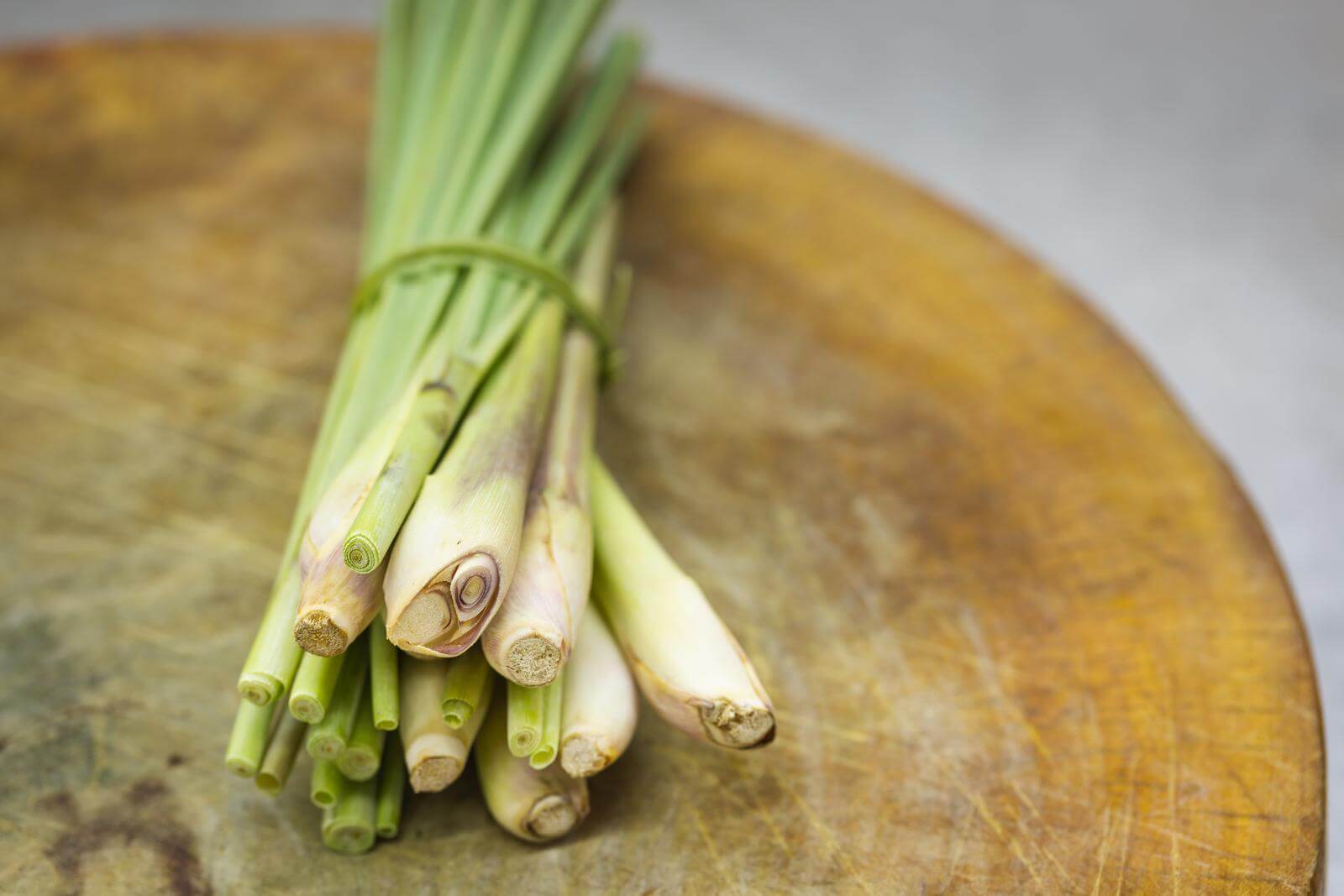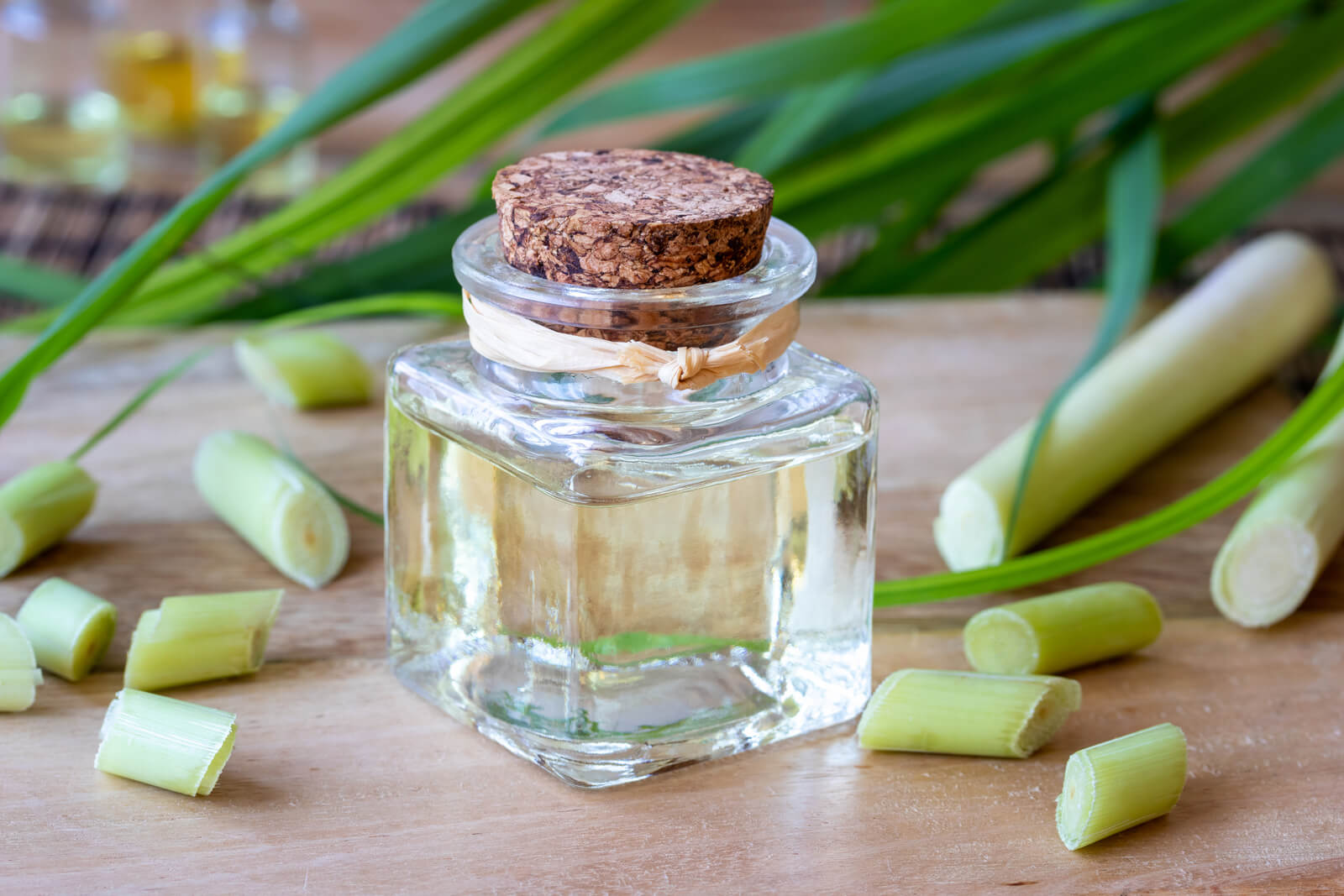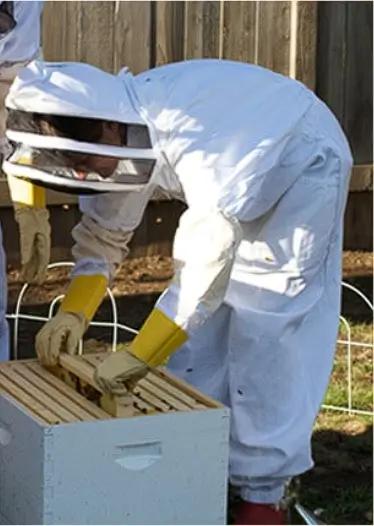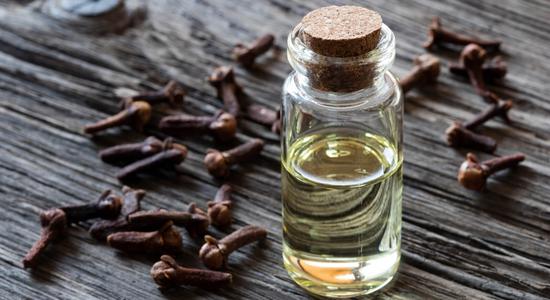See all "Essential Oil" Section Topics

Citronella essential oil for Candida is a great idea for a natural remedy. Citronella is obtained from species of lemongrass (Cymbopogon). As stated elsewhere on this site, lemongrass essential oil is also fungicidal; hence, it can be used to allay yeast infections. Lemongrass oil is created from a different species of Cymbopogon than citronella oil is; that species is Cymbopogon citratus.
There are two types of citronella oil you can find, and there may be differences in their fungicidal efficacy. Citronella oil is classified, in trade, into two chemotypes: ceylon and java. They are obtained from two different species of lemongrass and vary greatly in their chemical constituents.
The greatest difference of importance, is perhaps the ratios of citronellal and geraniol found in the two different oil types. Both citronellal and geraniol have been shown to have the ability to stop certain types of Candida. But, citronellal was much more efficacious at stopping Candida krusei than geraniol. Thus, using an oil higher in citronellal might be the best choice for the most common yeast infection species; i.e., Candida albicans. The components of each chemotype are listed later on in this delineation.
A caveat to consider, is that the best way to treat a yeast infection with essential oil, is by mixing several different oils together. The well known expert, the late Dr. James Duke, in his book The Green Pharmacy,suggests mixing medicinal herbs together to create a synergistic healing effect. This same logic can be employed with essential oils, since they are merely distillates of plant chemicals (such as terpenes, etc.). To find other Candida killing oils you can check out this page: essential oils for yeast infection.
A 1/2 Day & Yeast is Gone!
Linda Allen suffered from yeast infections for years. Through researching natural medicine & Candida, she found an efficacious solution!
Linda is one expert you want on your side! Let her show you how to get rid of a superficial yeast infection in just 12 hours; AND, keep it gone!
A 60-day, 100% money back guarantee is provided.
Visit Official Site!Ceylon Type Citronella Oil
This type of citronella, is obtained from the Cymbopogon nardus plant. The common nomenclatures for this plant are nard grass, citronella grass, nardus, and mana grass. The approximate major chemical components of ceylon oil are:
- geraniol (35.7% of total volatiles)
- trans-citral (22.7%)
- cis-citral (14.2%)
- geranyl acetate (9.7%)
- citronellal (5.8%)
- citronellol (4.6%)
Ceylon citronella oil, as you will see, has much less citronellal than the java type of the oil.
Eliminate Bacterial Vaginosis & Vaginal Odor
Jennifer O’Brien is one prominent expert on BV that knows how to get rid of vaginal odor. BV is a common infection that you don’t have to put up with.
Jennifer will show you how to naturally eliminate vaginal odor in just 3 days.
A 60-day, 100% money back guarantee is provided.
Visit Official Site!Java Type Citronella Oil
Java type citronella oil is produced from the Cymbopogon winterianus species. Winterianus is also known by the common English names citronella, citronella grass, and java citronella grass. The approximate major chemicals found in oil from Cymbopogon winterianus include the following:
- citronellal (35.9%)
- geraniol (20.9%)
- alfa-Cadinol (8.0%)
- germacrene B (6.8%)
- citronellol (5.2%)
Clair Goodall: Author & Nature Lover
Clair Goodall is a bee-obsessed natural medicine convert from Minnesota. She is one expert you might want to know more about!
Clair will help you protect you and your family from toxic products and chemicals and help you discover solutions from nature.
Also, Clair’s book is backed by a 60-day, 100% money back guarantee
Visit Official Site!Research

There have been many studies done on Cymbopogon species and their affects on fungus. One study, published in the Brazilian Journal of Microbiology [July 2015], tested the java citronella oil on Candida albicans strains. The study found that this essential oil was a potent killer of Candida yeast. The strongest concentration of this oil was able to quickly kill Candida albicans. Weaker concentrations took much longer to kill off the yeast. The Concentration of this oil, that was able to kill all the strains of Candida albicans tested, was 1.25 milligrams / milliliter. Additionally, the researchers compared the efficacy of java citronella essential oil to the conventional prescription drugs amphotericin B and nystatin.
Another study, published in Clinical Oral Investigations [March 2015], found that ceylon type oil from Cymbopogon nardus was comparable in its inhibitory ability against Candida albicans to java type oil from Cymbopogon winterianus. However, the study on the java type oil found drastically different inhibitory concentrations for various strains of Candida albicans. Some strains were inhibited with very low concentrations; and, other strains required much more java oil to inhibit. Thus, it is possible that the study on ceylon oil involved different strains of Candida albicans that were, perhaps, more susceptible. Either way, the ability of both types of citronella oil to combat Candida is established.
*MIC stands for minimum inhibitory concentration
How to Take Citronella (Cymbopogon nardus) Oil
- Topical Use: Dilute the oil before you use it directly on the problem area. Once diluted, you can apply it directly to the site that needs attention.
- Oral Use: Citronella oil generally regarded as safe for human consumption by the U.S. FDA. You can use one drop of oil in 4 ounces of liquid or 1 teaspoon of honey. Do not let children under 6 years old ingest this essential oil!
- Cautions: Repetitious use of this oil can cause contact sensitization. Citronella can cause irritation to sensitive skin. Be cautious if you are using this oil while you are pregnant. Inhaling citronella oil with a diffuser can cause an increase in your heart rate.
Using Citronella Essential Oil

- Insect Repellant — In the Tropical Medicine & International Health [April 2011] journal, researchers suggested that citronella oil, when combined with vanillin, provided good protection against mosquitos for up to three hours. The study also analyzed the ability of this combination against DEET.
- Digestive System Inflammation — Citronella oil may also help stop inflammation in the digestive tract, liver, and stomach. Try adding a little essential oil to your tea to help sooth your stomach and other areas of the digestive system.
- Antiseptic Cleaning Agent — Citronella oil can kill some types of bacteria and fungus; and, is therefore a good antiseptic. Additionally, this oil has a pleasant smell. You may want to add this oil to cleaning liquids and use it to clean around the house. It can leave your rooms smelling fresh and clean, in addition to killing off harmful microorganisms. Try it in your mop water next time you clean up your floors.
Author: Mr. Nicholas Gross

Nick Gross is a natural medicine enthusiast who has been researching and writing about natural medicine since 2008. Nick is primarily a web developer but also researches and authors written and video content about natural health. Nick has a bachelor’s degree in Management Information Systems from the University of Northern Iowa.
Disclaimer
The information on this website is not a prescription for anyone. This information is for informational or educational purposes only, and is not a substitute for professional medical advice or consultations with healthcare professionals.
Affiliate Disclosure
Some of the links provided on this website are affiliate links. When a purchase is made through these links, Candida Hub earns money from commission. This helps to keep the website up and helpful to people for free. Thank you for any support!
Stay Up to Date
If you enjoyed this article, consider following / liking our Facebook page. This page is primarily utilized to alert followers of new articles that are put on Candida Hub. Candida related news is also discussed. While you are there, you can see what has been more recently added to Candida Hub.
SOURCES:
- http://www.scielo.br/img/revistas/mioc/v104n6/10t02.gif — graph of geraniol and citronellal and their effects on two species of Candida.
- http://www.scielo.br/scielo.php?pid=S1517-83822011000200004&script=sci_arttext — both geraniol and citronellal demonstrate anti-Candida ability.
- http://www.jmcs.org.mx/OLD/PDFS/F3/07-Experiments.pdf — composition of Cymbopogon winterianus
- http://www.ncbi.nlm.nih.gov/pmc/articles/PMC3769829/ — De Oliveira, Wylly Araújo et al. “Antifungal Activity of Cymbopogon Winterianus Jowitt Ex Bor against Candida Albicans.” Brazilian Journal of Microbiology 42.2 (2011): 433–441. PMC. Web. 11 July 2015.
- http://link.springer.com/article/10.1007/s00784-015-1450-3 — Clinical Oral Investigations (March 2015) study
- http://www.ncbi.nlm.nih.gov/pmc/articles/PMC3769829/ — De Oliveira, Wylly Araújo et al. “Antifungal Activity of Cymbopogon WinterianusJowitt Ex Bor against Candida Albicans.” Brazilian Journal of Microbiology 42.2 (2011): 433–441. PMC. Web. 11 July 2015.
- http://onlinelibrary.wiley.com/doi/10.1111/j.1365-3156.2011.02781.x/pdf — Tropical Medicine & International Health (April 2011) — inscet repellant properties of citronella oil
- Google Books — Duke, J. A. (1997). The green pharmacy: New discoveries in herbal remedies for common diseases and conditions from the world's foremost authority on healing herbs. Emmaus, Pa: Rodale Press.
- Google Books — Higley, Connie, and Alan Higley. Reference guide for essential oils. Abundant Health, 1998.







